I have repeatedly pointed out that the modern Russian military industry has little continuity with the Soviet one. Destroyed in the 1990s, it was effectively created anew in the Putin's era. Still, it may sound too abstract, so I will zoom in on one specific example:
Stankomash
Stankomash

Located in Chelyabink, Stankomash industrial park hosts major producers for the nuclear, shipbuilding, oil & gas and energy industries. It also produces weaponry, including mine trawls and artillery ammunition (based on the open sources)
All under the umbrella of Konar company
All under the umbrella of Konar company
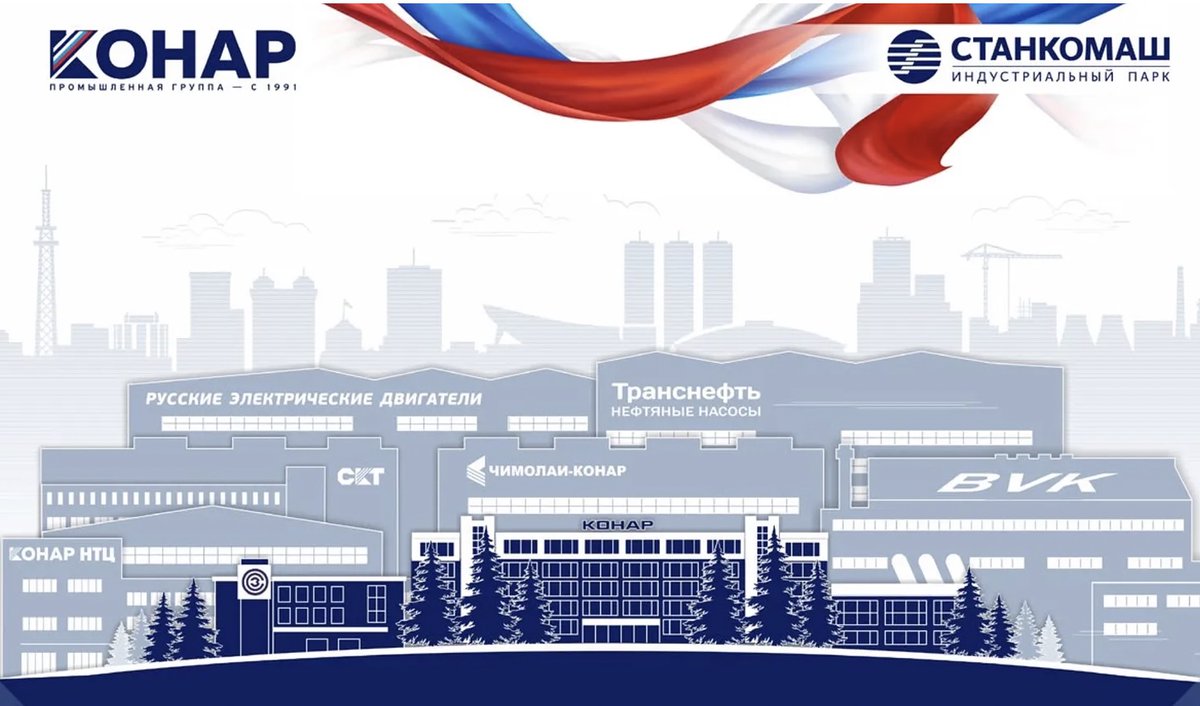
Some examples of the Stankomash manufacture. These photos well illustrate the philosophy of Soviet/Russian dual use industry. In the peace time, you focus primarily on civilian products, in the war time you convert it all to the production of weaponry.






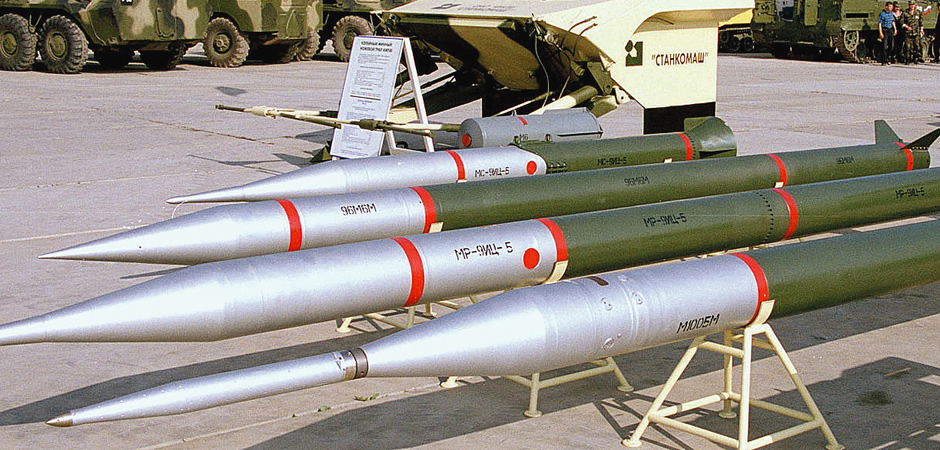

Now the neat part is. The dual use purpose of this plant remains pronouncedly Soviet. But the plant itself is not Soviet. It's Russian. It's all created anew. Having exactly 0% continuity with the old plant build by Joseph Stalin, new plant was 100% built anew by Vladimir Putin. 

The old, original Stankomash was launched in 1935. Officially framed as a machine tool producer, it was of course a dual use facility that played major role in the WWII as the manufacturer of tanks & artillery ammo.
Dual Use = Civilian -> Military (when the necessity arises)




Dual Use = Civilian -> Military (when the necessity arises)




In the post-war era, the Stankomash plant grew as a producer of broad range of manufacturing, ranging from the construction steel frames to meteorological rockets. The 50-th anniversary of Stankomash celebrated in 1985 would be long remembered as the apogee of this plant. 

With the fall of the USSR in 1991, Soviet manufacturing sector collapsed and the Stankomash collapsed as well. It quickly degraded losing its production base, workforce, technology. By the early 2010s, the old Soviet plant did not exist anymore. It was a bunch of ruins.





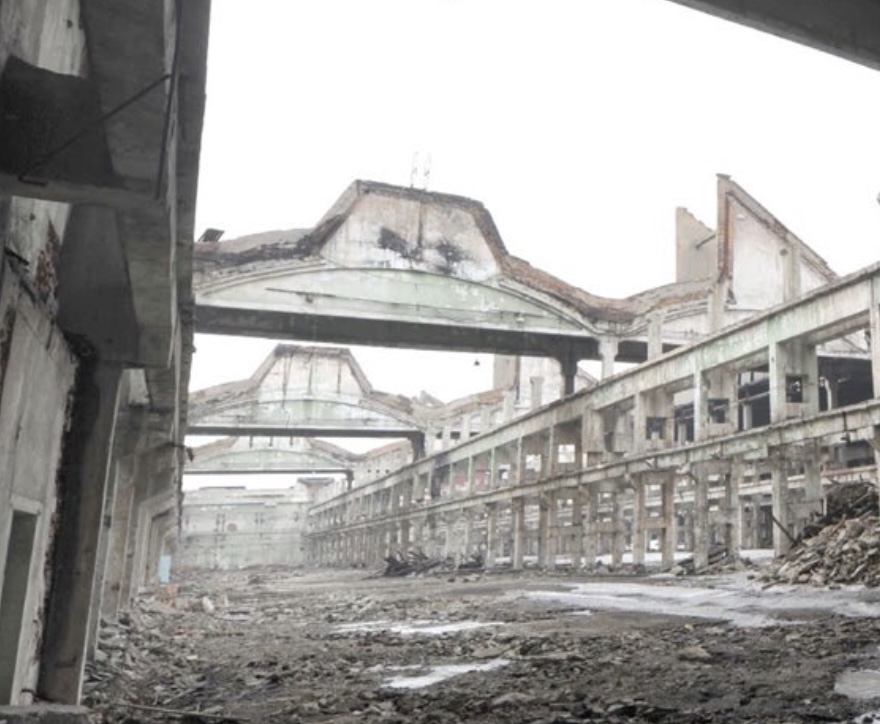

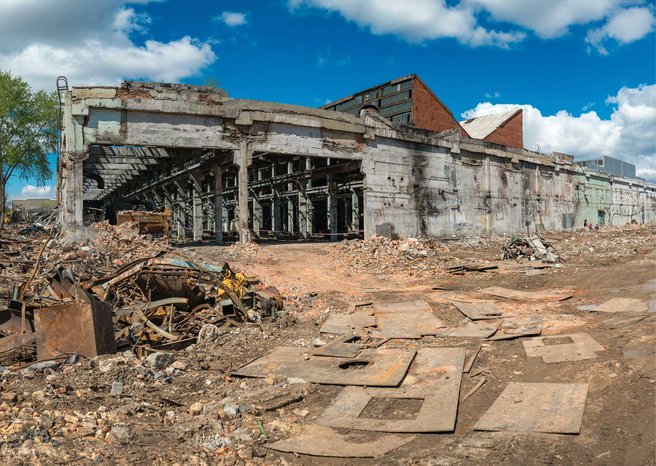
In 2014, the ruins of Stankomash were acquired by a quasi private (assume it's all government money) Konar group for around 3 million USD. Between 2015 and 2020 Konar reconstructed the Stankomash, effectively creating it anew, from zero.
How Stankomash looked in 2017 vs now


How Stankomash looked in 2017 vs now

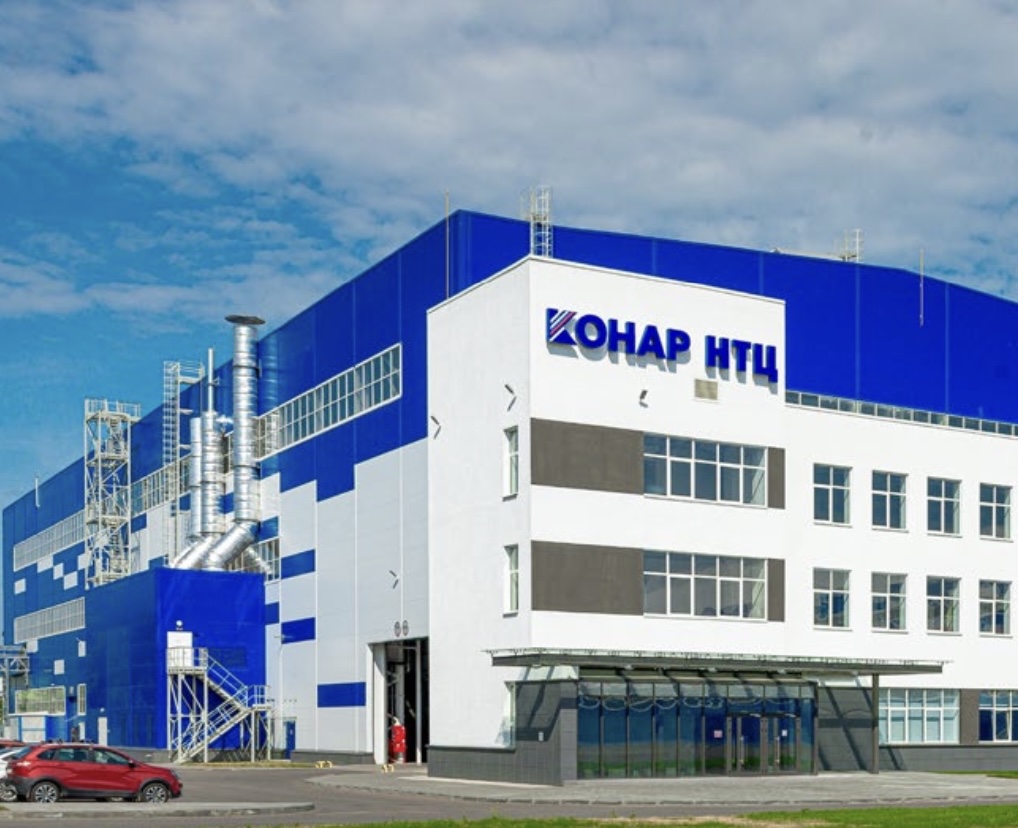
Question: Ok, but how do you even "revive" a manufacturing plant from this point? You did not just lose the machines. You have lost the workforce, skills, technology. All you have is a concrete frame of questionable quality.
Answer: You hire someone else to do it *all* for you.
Answer: You hire someone else to do it *all* for you.

As Russia lost the knowledge necessary for operating, let alone recreating old Soviet production chains, it necessarily had to commission someone knew how to do it. So, the new Putin's Stankomash was build as a set of turnkey projects by the Western (primarily Italian) companies 

Let's have a look at who built the specific production facilities of Stankomash:
“BVK” Foundry - Gruppo Cividale S.p.A. (Italy)
“Konar - Cimolai” - Cimolai S.p.A. (Italy)
“Transneft Oil Pumps” - Pompe S.p.A. (Italy)
“Kornet” - Nickelage line provided by Kanigen (Japan)
“BVK” Foundry - Gruppo Cividale S.p.A. (Italy)
“Konar - Cimolai” - Cimolai S.p.A. (Italy)
“Transneft Oil Pumps” - Pompe S.p.A. (Italy)
“Kornet” - Nickelage line provided by Kanigen (Japan)

Konar-Orion - Orion S.p.A. (Шефдн)
Russian Electric Engines - Nidec ASI S.P.A. (Italy, Japan)
NB: It's all framed as the "Joint Ventures" between Konar and the respective Italian companies. In reality, JV = turnkey project fully done by Italians from the beginning to the end
Russian Electric Engines - Nidec ASI S.P.A. (Italy, Japan)
NB: It's all framed as the "Joint Ventures" between Konar and the respective Italian companies. In reality, JV = turnkey project fully done by Italians from the beginning to the end

See the Konar Group website with the list of Joint Ventures residing at Stankomash. Most of them are openly called the "turnkey projects" (под ключ), fully conducted by the respective Italian producers. Russia basically buy the entire plant + technology + know hows for money. 
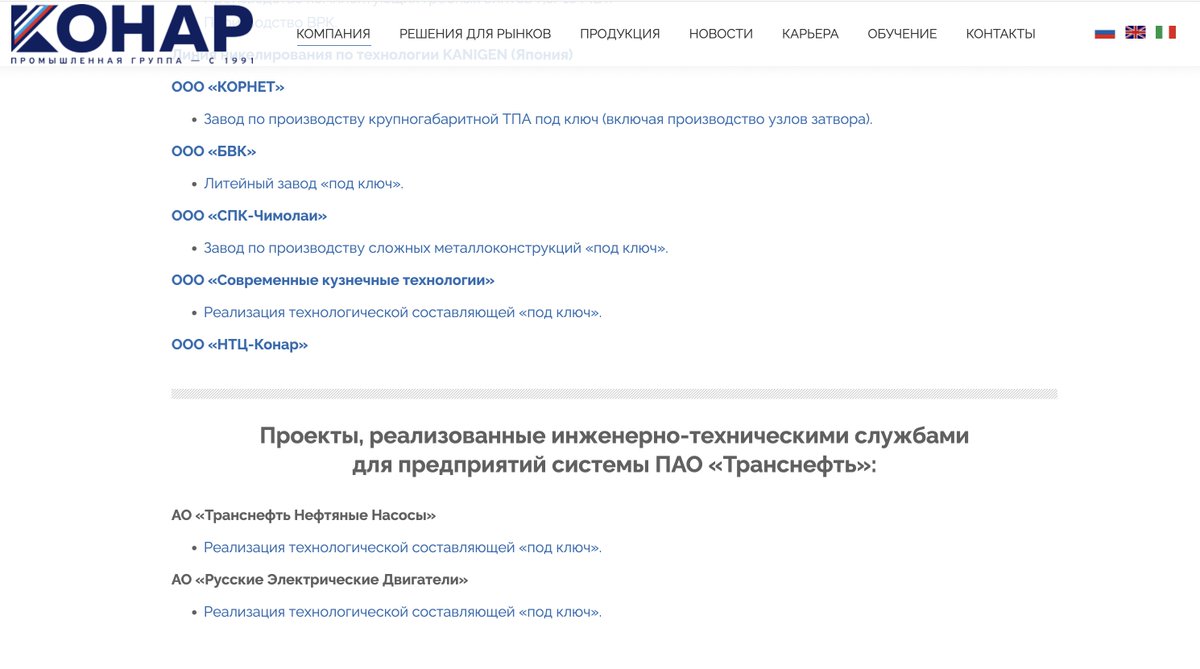
The list of Stankomash’s key technological partners.
🇮🇹🇮🇹🇮🇹🇮🇹🇮🇹🇮🇹🇮🇹🇯🇵🇳🇱🇫🇮🇪🇸🇬🇧
Notice, it's all Europe + a bit of Japan, but mostly just Italy. That's who created Stankomash, for the most part.
🇮🇹🇮🇹🇮🇹🇮🇹🇮🇹🇮🇹🇮🇹🇯🇵🇳🇱🇫🇮🇪🇸🇬🇧
Notice, it's all Europe + a bit of Japan, but mostly just Italy. That's who created Stankomash, for the most part.

Now let's have a look at who provided machinery (as opposed to the ready solutions). For the most part, it's all Europe, with only a minor inclusion of Japan.
🇮🇹🇮🇹🇮🇹🇮🇹🇮🇹🇮🇹🇮🇹🇮🇹🇮🇹🇮🇹🇮🇹🇮🇹🇮🇹🇮🇹🇮🇹🇮🇹🇮🇹🇮🇹🇮🇹🇮🇹🇮🇹🇮🇹🇩🇪🇩🇪🇩🇪🇩🇪🇩🇪🇩🇪🇩🇪🇩🇪🇩🇪🇩🇪🇩🇪🇩🇪🇩🇪🇩🇪🇨🇭🇨🇭🇨🇭🇨🇭🇯🇵🇯🇵🇯🇵🇯🇵🇪🇸🇪🇸🇸🇮🇸🇮🇫🇷🇫🇷🇱🇹🇱🇹🇨🇿🇨🇿
🇬🇧🇳🇱🇳🇴🇦🇹
🇮🇹🇮🇹🇮🇹🇮🇹🇮🇹🇮🇹🇮🇹🇮🇹🇮🇹🇮🇹🇮🇹🇮🇹🇮🇹🇮🇹🇮🇹🇮🇹🇮🇹🇮🇹🇮🇹🇮🇹🇮🇹🇮🇹🇩🇪🇩🇪🇩🇪🇩🇪🇩🇪🇩🇪🇩🇪🇩🇪🇩🇪🇩🇪🇩🇪🇩🇪🇩🇪🇩🇪🇨🇭🇨🇭🇨🇭🇨🇭🇯🇵🇯🇵🇯🇵🇯🇵🇪🇸🇪🇸🇸🇮🇸🇮🇫🇷🇫🇷🇱🇹🇱🇹🇨🇿🇨🇿
🇬🇧🇳🇱🇳🇴🇦🇹

Now let's have a look onto the factory floor. Heavy, foundry & forging equipment seems to be all Italian. Makes perfect sense, as Italians have basically built it all, provided skills and technology.
Danieli Foundry Line 🇮🇹
Vecchiato Forging Workshop 🇮🇹


Danieli Foundry Line 🇮🇹
Vecchiato Forging Workshop 🇮🇹


Once again, it's not about "buying a machine". It's about buying the entire solution + technology, from the beginning to the end. Zoom in, onto the Vecchiato workshop.








Waldrich Coburg 🇩🇪 Speedram 🇮🇹 Toshulin 🇨🇿
Again, all Western Europe with only rare inclusions of Japan/Taiwan




Again, all Western Europe with only rare inclusions of Japan/Taiwan

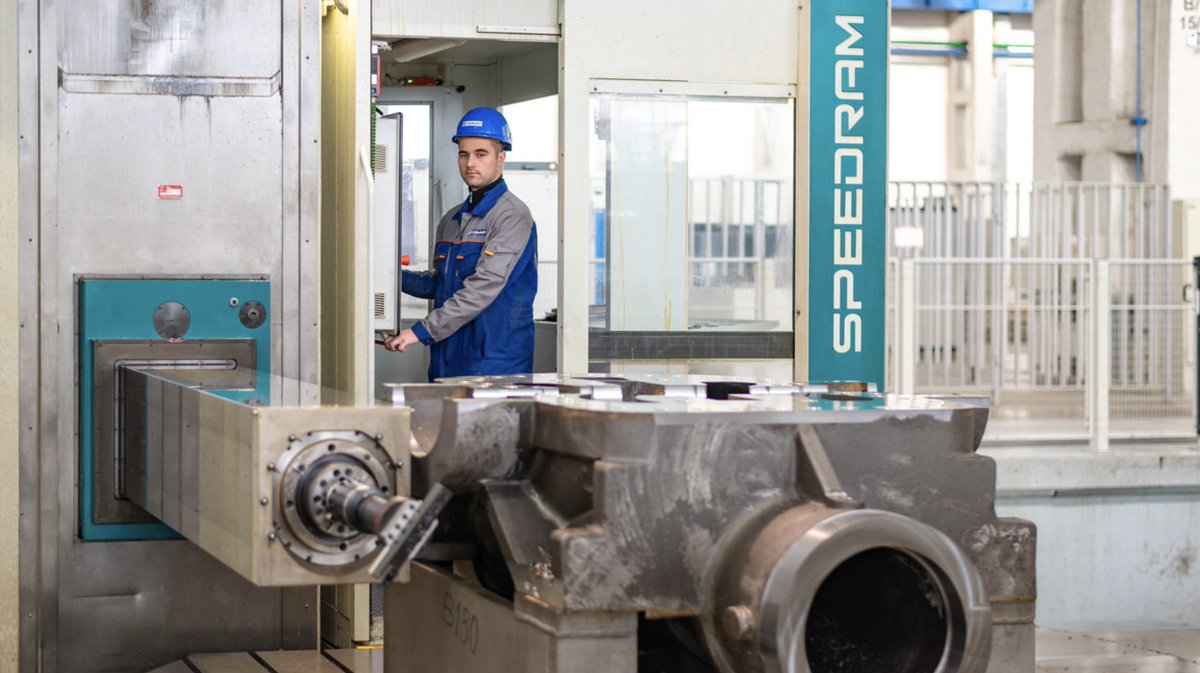


With the start of this war, Stankomash has been refocused on military production. Not only does it produce weaponry (ammunition & mine trawls, based on the open sources). It also supports other military plants, conducting casting, forging, machining etc. operations for them.








So what does the Stankomash story tell us? First, it highlights how little continuity there is between Soviet and Russian military production. For the most part, Putin did not increase the military production capacities. He created them anew, after the fall and decline of 1990s. 

Second, it shows that the restoration of Russian dual use sector amounted to a series of turnkey projects conducted by the Old Industrial Powers. In this particular case of Stankomash - Italy
NB: Italy is a global power in metallurgy and Stankomash is largely a metallurgy plant




NB: Italy is a global power in metallurgy and Stankomash is largely a metallurgy plant




Third. The brilliant absence of China. I could find only one example of what seems to be Chinese equipment - a Tongda TD-3700 X-Ray Diffractometer. That's it. Apparently, China has played zero or nearly zero role in creation of this plant.
It's all Europe + a bit of Japan.
It's all Europe + a bit of Japan.

We do not know anything about the global economy. We do not understand how it is structured. When you really need the heavy industry (for war), you do not go to the Great Manufacturing Superpower of China. You go to the toy, funny, irrelevant countries of Europe.
In-credible
In-credible

Now that is because those toy, irrelevant countries are, in fact, the Old Industrial Powers. And the Old Industrial Powers control the key, strategic industries that constitute the fabric of our industrial civilisation.
They produce the means of production, for everyone.
They produce the means of production, for everyone.

The end
• • •
Missing some Tweet in this thread? You can try to
force a refresh










